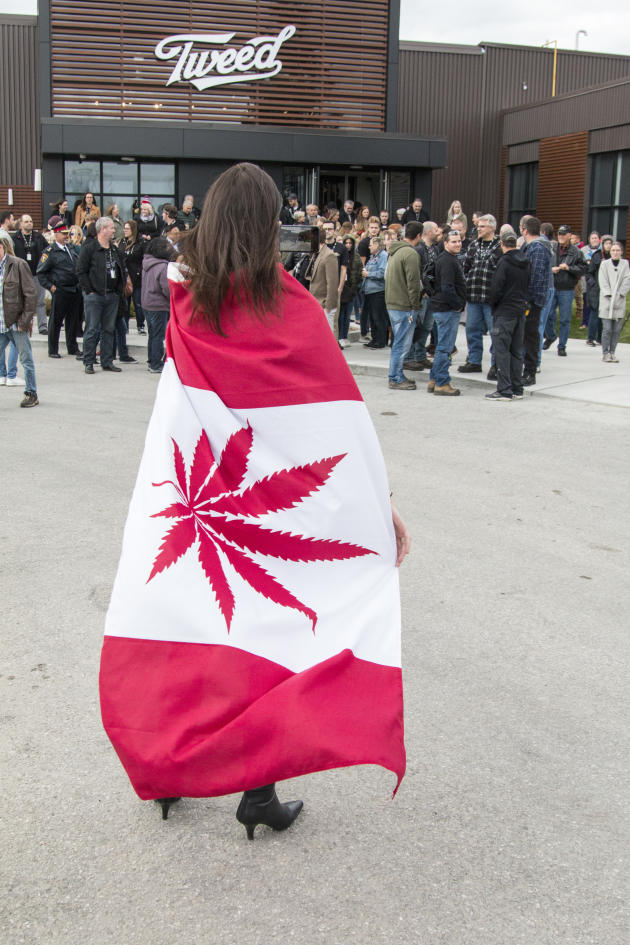In Smiths Falls, a town in eastern Canada, fortune has long had the smell of chocolate. That released by the factory of the confectionery giant Hershey, the first employer in this small town in Ontario, until the company decided, in 2008, to relocate its production to Mexico. Ten years later, while the city is stuck in the economic doldrums, an intriguing buyer transforms the abandoned factory. Smiths Falls soon exudes another flavor, that of cannabis, and becomes the capital of an industry whose inhabitants learn the name as they are rehired: the weed tech – new technologies applied to grass.
The new local pride is called Canopy Growth, the world’s number one cannabis producer. In 2019, a year after the takeover of the facilities, the company reached a record market valuation of 13.7 billion euros and its CEO, David Klein, was then the highest paid in Canada. The giant cylinders once used by Hershey to mix sugar in candy bars are now used to irrigate “marijuana” plants. There factory running at full capacity: 800,000 joints per day.
Betting on Smiths Falls in this year 2019 is no coincidence. It’s only been a few months since the country legalized cannabis, and there are plenty of potential customers. According to the official organization Statistics Canada, 20% of the inhabitants over the age of 15 are then regular smokers. The firm Deloitte estimates the national legal cannabis market at 2.5 billion US dollars in 2020, and anticipates its growth to 6.7 billion in 2026.
What give Canopy Growth dreams of grandeur… Except that the company, too ambitious, ill-prepared, subject to the strict quotas of medical licenses and the rigidities of a sector controlled by the State, will explode in flight.
Alcohol and tobacco juggernauts
Listed on the “Cannabis Index” of the Toronto Stock Exchange, its share fell from 32.8 dollars in February 2021 to 7.12 dollars in February 2022, and less than 39 cents in the summer of 2023. In the last quarter of 2022 , the company had $260 million in net losses. It laid off eight hundred employees, including the majority of Smiths Falls staff. The factory has closed again. The short-lived cannabis capital has plunged back into crisis.
The “case” of Smiths Falls is not anecdotal. It is the parable of an ultra-speculative sector, where anticipation and unreasonable financial bets reign. Its pioneers are on the lookout for the legalization of therapeutic and recreational cannabis around the world. Each ratified law gives the green light to the rush for a new market. Licenses for medical use, flavored confectionery, refills for vaporizers, CBD oils… It takes a hand-stitched approach to adapt to local regulations that are often negotiated hard. But you have to be able to rely on solid cash to survive economic downturns and master aspects as diverse as industrial agriculture, logistics, advanced chemicals and marketing. So much so that the behemoths of alcohol and tobacco have already set their feet on this nascent market, by means of discreet investments. A pot bet “to see”, like in a game of poker.
You have 69.67% of this article left to read. The following is for subscribers only.
